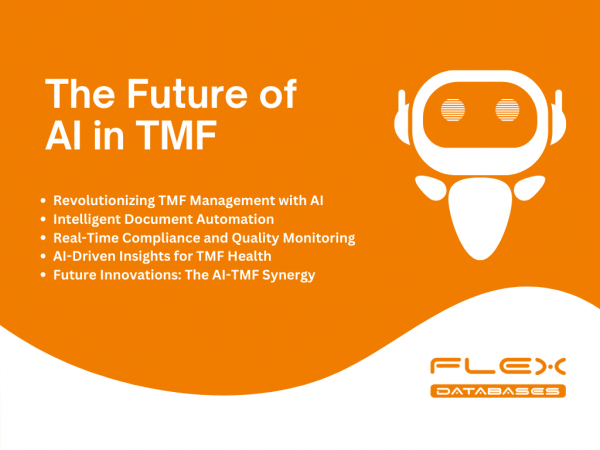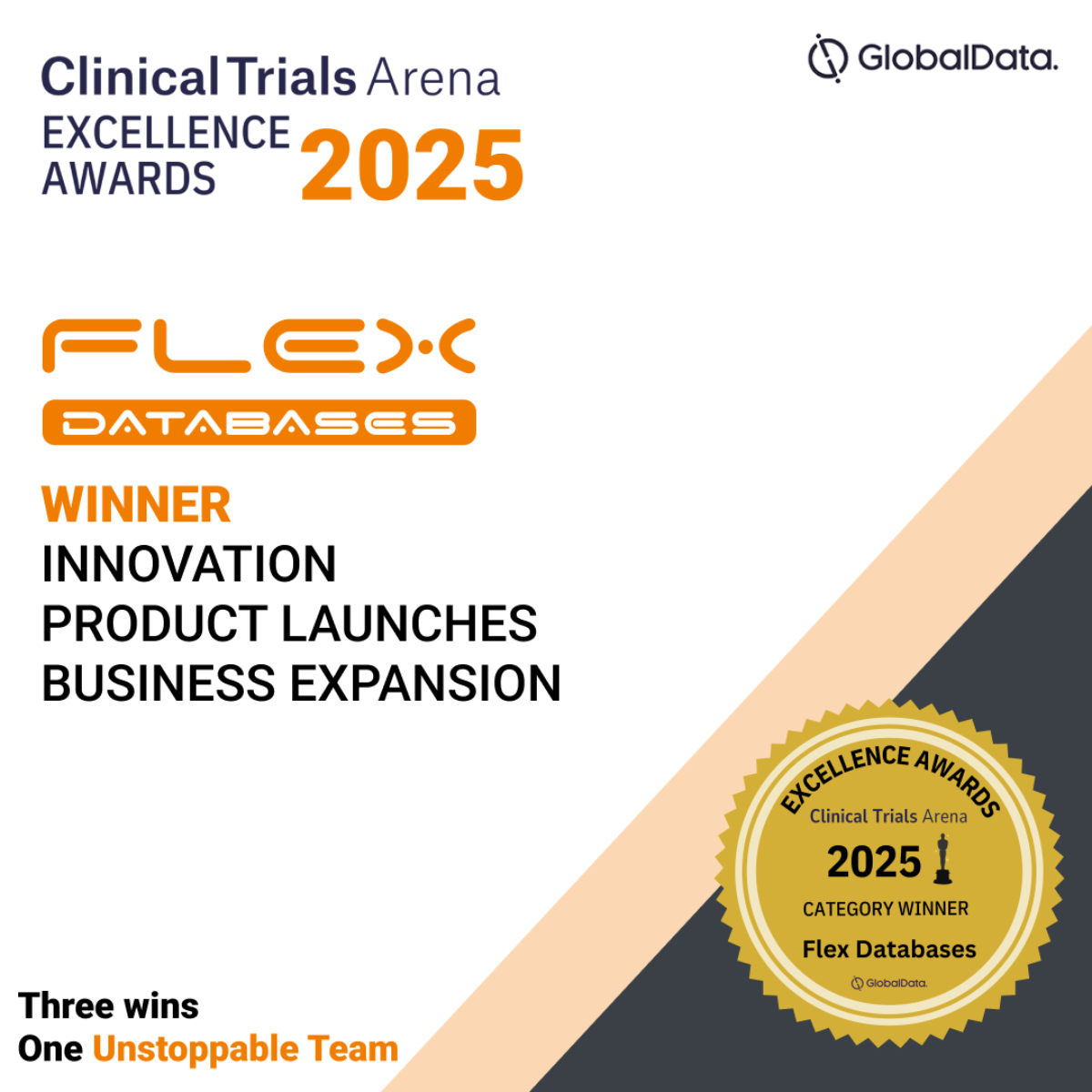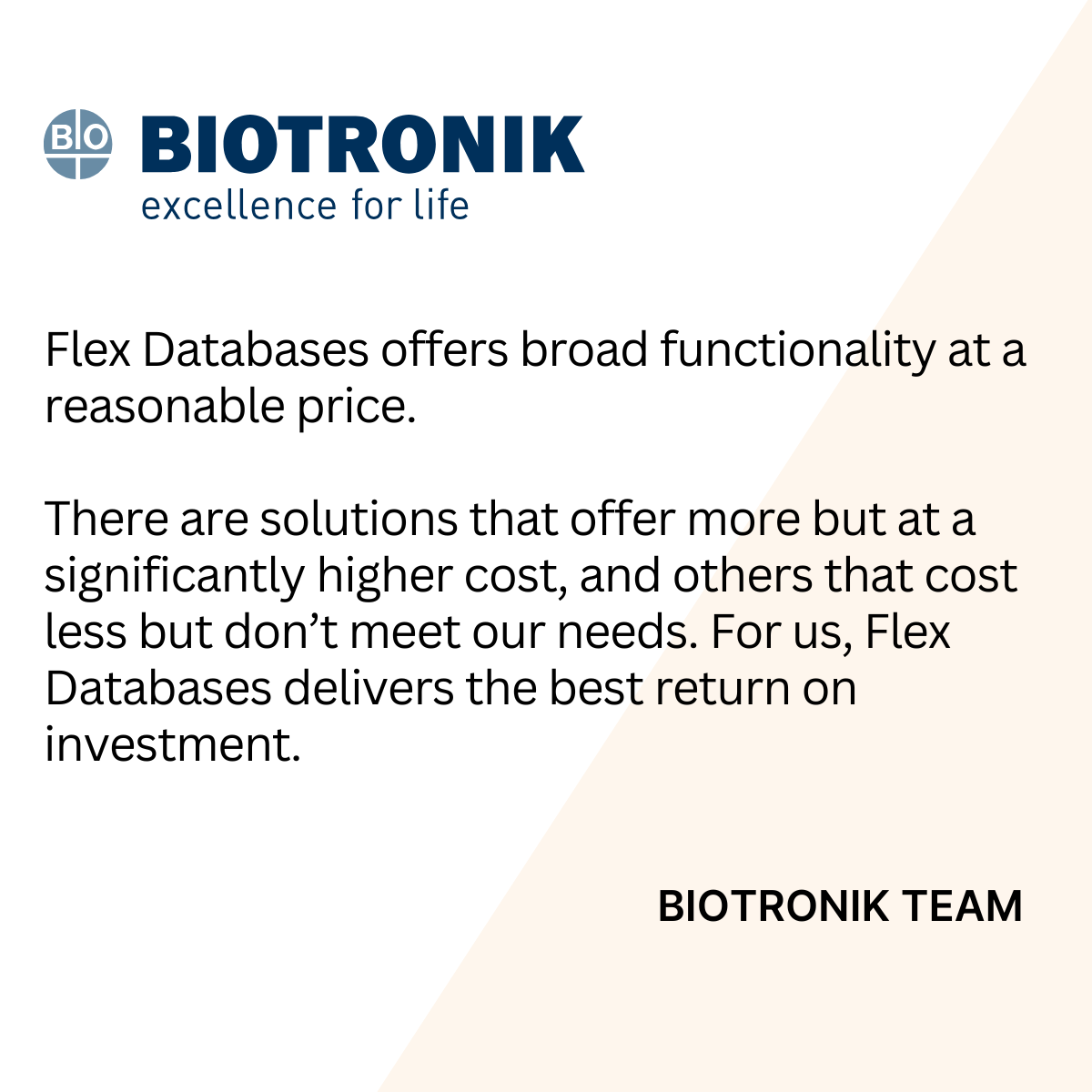The Future of AI in TMF
November 28, 2024

The Trial Master File (TMF) is the cornerstone of clinical trial documentation, serving as the definitive record of compliance with regulatory standards and ethical guidelines. Yet, the management of TMFs has grown increasingly complex with the rise in document volume, diversity, and stringent compliance requirements. Artificial intelligence (AI) is poised to address these challenges, introducing innovations that streamline processes, enhance compliance, and deliver insights for better decision-making. This article examines how AI is reshaping TMF management today and the potential it holds for the future.
Revolutionizing TMF Management with AI
AI has emerged as a game-changer in TMF management, offering solutions that simplify and optimize every aspect of the process.
Intelligent Document Automation
Traditional TMF processes often involve labor-intensive tasks prone to human error. AI transforms these workflows with technologies like:
- Automated Document Classification: Machine learning algorithms swiftly organize and categorize documents, replacing manual sorting.
- Dynamic Metadata Tagging: AI ensures accurate metadata assignment, improving search ability and traceability.
- OCR for Legacy Documents: Optical Character Recognition extracts text from scanned files, integrating them into modern digital systems.
This automation not only saves time but also enhances accuracy, ensuring a robust and efficient TMF framework.
Real-Time Compliance and Quality Monitoring
AI tools excel in identifying and mitigating risks, ensuring that TMFs remain compliant and audit-ready.
- Proactive Quality Checks: AI analyzes documents for missing data, errors, or inconsistencies during submission.
- Audit Readiness Assessment: Advanced algorithms compare TMFs against regulatory requirements, flagging areas needing improvement.
- Predictive Risk Monitoring: AI models detect patterns that may indicate future compliance risks, enabling proactive measures.
These capabilities empower organizations to stay ahead of potential issues, significantly reducing audit preparation time and effort.
Workflow Optimization
AI redefines TMF workflows, enhancing efficiency at every stage.
- Task Prioritization: Intelligent systems allocate tasks based on urgency and complexity.
- Streamlined Review Processes: AI identifies areas in documents requiring attention, expediting reviews.
- Bottleneck Resolution: Predictive analytics anticipate workflow bottlenecks and suggest solutions to maintain timelines.
By integrating AI into workflows, organizations can achieve faster, more efficient operations without compromising quality.
AI-Driven Insights for TMF Health
Beyond management, AI offers unparalleled insights into the overall health and performance of TMFs.
- Real-Time Dashboards: AI-powered analytics provide instant visibility into metrics such as document completeness and submission trends.
- Content Analysis with NLP: Natural Language Processing evaluates narrative sections for clarity, consistency, and compliance.
- Trend Prediction: Predictive analytics reveal patterns affecting trial timelines, allowing for better resource planning.
These insights enable smarter, data-driven decisions, ensuring TMFs support trial objectives effectively.
Future Innovations: The AI-TMF Synergy
AI’s integration with TMFs is set to deepen, introducing groundbreaking advancements:
Deep Learning for Advanced Interpretation
Deep learning models will analyze complex clinical data, extracting actionable insights from unstructured documents. These systems will contextualize updates to protocols, amendments, and investigator brochures, ensuring seamless integration into TMFs.
Risk-Based Audit Evolution
AI will revolutionize auditing with capabilities such as:
- Virtual Auditors: Automated systems continuously assess TMF compliance, reducing reliance on manual audits.
- Enhanced Traceability: AI creates transparent audit trails linking documents to their origins, ensuring accountability.
Interoperability with Clinical Systems
Future AI solutions will ensure seamless integration between TMFs, CTMS, and EDC systems. By facilitating real-time data exchange and enforcing interoperability standards, AI will enable unified ecosystems that support the full spectrum of clinical trial activities.
Key Benefits of AI in TMF Management
AI delivers tangible benefits, including:
- Improved Accuracy: Automation reduces human errors, ensuring high-quality documentation.
- Operational Efficiency: Faster processing and streamlined workflows save time and resources.
- Regulatory Confidence: Real-time monitoring ensures compliance, enhancing audit readiness.
Addressing Challenges in AI-Driven TMF Adoption
Despite its advantages, AI implementation faces hurdles such as algorithm biases, data security concerns, and evolving regulatory landscapes. Organizations must address these challenges by:
- Ensuring transparency in AI decision-making processes.
- Implementing robust cybersecurity measures.
- Advocating for regulatory frameworks that embrace AI-driven efficiencies.
Conclusion: AI’s Transformative Role in TMF
The integration of AI into TMF management represents a paradigm shift, offering solutions to longstanding challenges while unlocking new efficiencies. As clinical trials become increasingly complex, AI-powered tools will be indispensable in maintaining accurate, complete, and compliant TMFs. The future of TMF is no longer just digital—it is intelligent, paving the way for more efficient and successful clinical trials.



